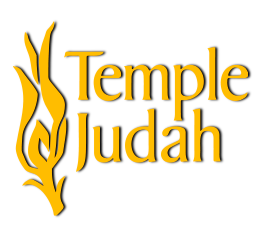Eyes Forward
We are in the news again. It’s hard to think of the events that occurred in Temple Beth Israel and not have many thoughts. Some may see this as a one-off event; that is, a lone troubled man acting violently due to a prisoner, he apparently hero-worshiped, was incarcerated at a federal prison nearby. Or you may see the events as a foreshadow of the deeper fear that hate groups from all over the spectrum will increase their attacks on us and in our houses of worship.
Do we as Jewish people store this fear within our very souls, our RNA? Some research seems to suggest that trauma can be passed down through the expression of proteins that become activated. Or is it conditioned within the stories we retell – the history that is so important to learn and teach?
The facts we know by now; that initially a gunman held four prisoners as they had assembled for Shabbat services; one man was set free while the three remained captive after an increasingly tense, life threatening 11-hour standoff, they somehow managed to escape.
How did you immediately react when you learned of this unfolding? Was it possibly fear, then anger over what appeared as antisemitism?
Rabbi Cytron-Walker said after the attack; ‘…that as a Bet Knesset which is literally a house of assembly, is an integral part of our religion, that we are stronger as a community when we come together’. We learned that after hearing the man pounding on the temple doors was let in and was made tea by the Rabbi, seeing a man that needed help he responded with “chesed” loving kindness. We should remember that even as there are bad people there are many more good people in our world, and this Rabbi was trusting in the good. How do you orient, towards fear or towards trust?
Antisemitism can have three components: blame, terror, and isolation. Jews can be blamed for things that are not our control or doing, such as the case this gunman used. We can become terrorized as in this case in Colleyville, Texas and such events can lead us, as a people or individuals, into isolation.
In our healing we are invited to see that any hatred towards another group of people or religion continues this cycle of fear, and we must continue to actively work within our community to build trust. Islamophobia is a hateful reaction, that we cannot tolerate. Overreacting to fear can be hateful and harmful, while some modest fear can act to prepare us, such as our ALICE training, which seemed to have helped in this specific case. Finding balance is, of course, the challenge.
It’s fitting that the Torah portion during the very service that was assailed was from Exodus… as the Egyptians were bearing down; there is a moment when at the shore, before the Red Sea parts, the Israelites look behind as they see this massive army coming at them. Their fear would have been terror much the same as the members in the Temple felt at that same moment in time.
Some point out that this Exodus passage emphasizes five specific verbs (1) “al’tirau” do not be afraid that we have come to understand means to not allow your fear to paralyze you. Certainly, one cannot save yourself (or others) without action, as this Rabbi Cytron-Walker did. (2) “heatyatzvu” stand stable (do not stumble) and in modern Hebrew it has become to mean to stand for something – not to be passive; (3) “vara’u” see, that is to see the fullness of the presence that surrounds you. One may view even a chair as a method to escape (4) “atem tachrishun” to be silent – or rather to calm oneself. Those who can take stock and calm yourself have an advantage when faced with terror. (5) “va’eesu et einiehem” put your eyes forward. That is, to have a goal, have a plan. This event paired with these simple words become more impactful when set in the context of living today.
Jews who pray according to traditional liturgy each morning recite a line that is usually symbolic: “Blessed are you, God, who frees the captive.” This last week, the symbolic and the reality became one.
Robert Becker
Temple Judah President
*I wish to credit to the podcast “Chutzpod” from which this column was based.

